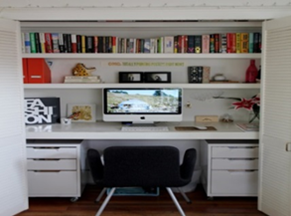 August 2024
August 2024
The transition to remote work has been taxing on high-rise communities.
It is reasonable for condo communities to allow commercial activities in units while restricting what type of commercial activities are acceptable. One approach would be to restrict activities that involve client visitations, displays visible from the outside, deliveries of merchandise, resale of manufactured items, structural alterations to the suite and those that cause noise, vibration, smoke, odours, heat, humidity or glare.
More are cooking at home with some operating a restaurant or bakery business. People stop by to pick up their orders and neighbours are forced to deal with distasteful odours. Heavier traffic in the parking area becomes a danger to pedestrians and visitor parking becomes unavailable.
Not all home-based businesses are suitable for condominium buildings.
Consulting businesses work well. These include computer-based businesses, writing and research services, and counselling or therapy services. These businesses tend not to have a significant number of clients visiting the “office”. While some commercial activity may be prohibited, working from home on behalf of an employer or operating a business that does not involve customer traffic or employees may be acceptable.
Businesses that have clients/guests/patients waiting in condo lobbies or common areas may contravene condo rules.
Residential condominium corporation declarations typically have provisions stating that the unit can only be used or occupied as a private single-family residence. Working from home or running a business is allowed so long as the business activity is quiet, does not have many visitors, and does not negatively impact on common areas. Certain activities may be restricted if they increase liability or costs for the corporation, or cause a nuisance for other residents.
 Operating a business from home without proper insurance is risky. Residential insurance policies do not anticipate the risks inherent in operating a business. Activities that can impact on or potentially result in cancellation of residential insurance may be prohibited in a condominium building. If a fire is caused when cooking for family or friends, this would be covered under a residential insurance policy. This same policy is unlikely to be valid for a fire caused by cooking for paying clients including take-out deliveries. There would be no coverage if someone sues for food poisoning.
Operating a business from home without proper insurance is risky. Residential insurance policies do not anticipate the risks inherent in operating a business. Activities that can impact on or potentially result in cancellation of residential insurance may be prohibited in a condominium building. If a fire is caused when cooking for family or friends, this would be covered under a residential insurance policy. This same policy is unlikely to be valid for a fire caused by cooking for paying clients including take-out deliveries. There would be no coverage if someone sues for food poisoning.
Any resident injured while exercising in common areas would likely be covered under their personal insurance policy. When a class is sanctioned by the condominium corporation and potential injuries are covered by the corporation policy there could be higher premiums, separate insurance coverage required by the provider of the class, or a liability form making participants responsible for injuries or accidents that arise.
Condominium corporation documents limiting the use of suites for residential purposes are generally intended to discourage nuisance behaviour, activities that utilize common areas for commercial purposes or which negatively impact on condo residents.
 Businesses that do not undertake activities noticeable by management and neighbours are generally not a problem. Those that negatively affect neighbours are likely to be frowned upon.
Businesses that do not undertake activities noticeable by management and neighbours are generally not a problem. Those that negatively affect neighbours are likely to be frowned upon.







